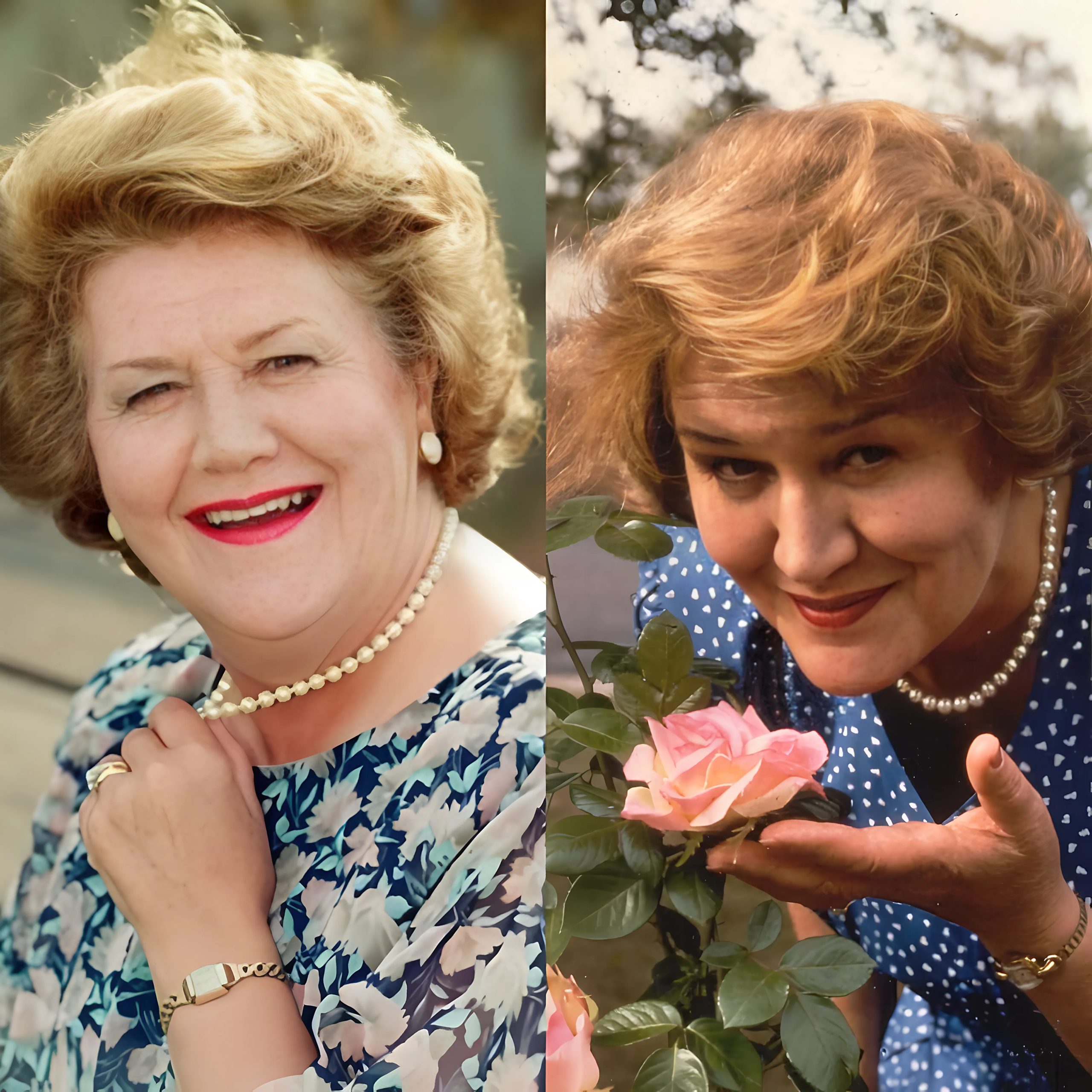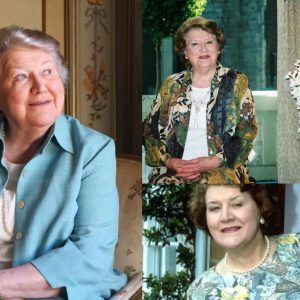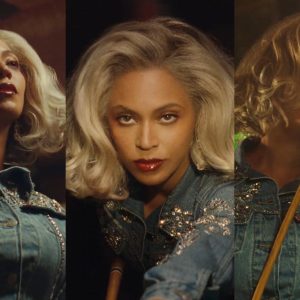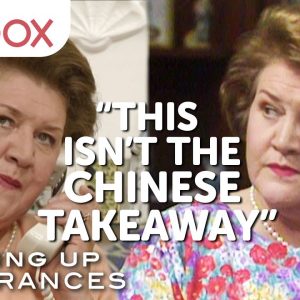A Royal Farce of Social Climbing: Revisiting the Enduring Brilliance of Keeping Up Appearances
More than three decades since its debut, the beloved British sitcom Keeping Up Appearances continues to reign as one of television’s most delightfully biting comedies. Originally broadcast between 1990 and 1995, this gem of a series, created by Roy Clarke, carved out its niche in television history through its razor-sharp satire, unforgettable performances, and an unparalleled ability to turn suburban pretension into pure comedic gold.
At its heart lies a character whose very name has become synonymous with social ambition: Hyacinth Bucket—pronounced “Bouquet,” if she has anything to say about it.
Hyacinth Bucket: The Self-Appointed Sovereign of Social Status
Played to perfection by Dame Patricia Routledge, Hyacinth Bucket is the indomitable force driving the narrative of Keeping Up Appearances. With her clipped vowels, porcelain teacups, and relentless pursuit of refinement, Hyacinth is the epitome of aspirational class climbing. She is a woman consumed not by wealth or power, but by the desperate, often delusional desire to be perceived as better. Not merely upper-middle class—Hyacinth seeks to ascend to the heights of aristocracy, even if she must drag her reluctant husband and bewildered neighbors along for the ride.
Routledge’s portrayal is a masterclass in comic performance. Hyacinth is simultaneously insufferable and endearing, a character whose ridiculousness is matched only by her sincerity. Whether she’s planning candlelight suppers, answering her “white slimline telephone with automatic redial” in her best pseudo-royal tone, or mortifying her relatives in public, Hyacinth’s antics are driven by an earnest desire to matter in a world that refuses to take her seriously.
Richard Bucket: The Reluctant Knight to Hyacinth’s Court
If Hyacinth is the self-declared queen of social elevation, then Richard Bucket (Clive Swift) is her weary court jester—though he plays the straight man in this kingdom of chaos. A retired civil servant with a perpetually harried expression, Richard is the glue that barely holds their carefully orchestrated façade together. Swift imbues Richard with dry wit and an undercurrent of resignation; his responses to Hyacinth’s endless schemes are often no more than a quiet sigh, a reluctant nod, or an incredulous glance to the camera.

Richard isn’t simply a foil—he’s the audience’s lens into Hyacinth’s world, reacting as we would to her absurdity. And yet, beneath the exasperation is a curious loyalty. Perhaps it’s love, perhaps it’s habit, but Richard stays—through impromptu garden parties, duck-filled canal outings, and humiliating faux pas at every turn.
The Eccentric Ensemble: A Suburban Greek Chorus
Keeping Up Appearances boasts a supporting cast as colorful and unpredictable as Hyacinth’s wardrobe. There’s Elizabeth (Josephine Tewson), Hyacinth’s trembling neighbor who cannot hold a teacup steady in her presence, and Elizabeth’s brother Emmet (David Griffin), a quiet musician driven to near-madness by Hyacinth’s unsolicited operatic performances.
But it is Hyacinth’s extended family that truly throws a wrench into her carefully constructed fantasy. Her sisters—Daisy, Rose, and Violet—are each, in Hyacinth’s eyes, a walking, talking embarrassment. Rose is man-hungry and flamboyant, Daisy is lazy and unrefined, and Violet—who “owns a Mercedes, a sauna, and room for a pony”—is married to a cross-dressing husband. The very people Hyacinth would rather forget are constantly, hilariously, present.
Their appearances inevitably lead to social disasters, underscoring the central tension of the series: the futility of keeping up appearances when reality keeps knocking at the door, usually in the form of a muddy boot or an inappropriately timed phone call.
A Comedy of Manners with Sharp Teeth
While Keeping Up Appearances is undeniably funny, its genius lies in its deeper critique of class structures and social mobility. Roy Clarke’s script dances elegantly between slapstick and satire, offering audiences more than just laughs—it offers perspective. The show skewers the British class obsession with surgical precision, but never resorts to cruelty.
Hyacinth’s relentless self-delusion, far from making her a villain, renders her tragically human. In her world, status is survival. Her obsession with etiquette, lineage, and appearances is not merely vanity—it’s a defense against insignificance. This is where the brilliance of the show lies: we laugh at Hyacinth, but we also recognize her struggle in ourselves. Who hasn’t, at some point, tried a little too hard to impress?
The brilliance of Keeping Up Appearances is that it never overtly moralizes or condemns its characters. It lets the farce unfold naturally, allowing the comedy to emerge from genuine interactions and relatable flaws.
Global Reach and Cultural Staying Power
Since its original run, Keeping Up Appearances has transcended its British roots to become a global phenomenon. Syndicated in over 60 countries and now a staple on digital streaming platforms, the series continues to charm audiences old and new. For many, Hyacinth’s misadventures are a comforting return to a time when comedy relied not on cynicism, but on character-driven storytelling and keen social observation.
Its catchphrases—“It’s Bouquet, not Bucket!”—have become etched in the annals of sitcom history. Reruns still draw loyal fans, and Routledge’s performance is frequently cited among the greatest comedic portrayals in television.
The show’s enduring appeal lies in its universality. Whether in a quaint English village or a bustling modern metropolis, the impulse to project success and avoid social shame is timeless. And that’s why Keeping Up Appearances remains not just relevant, but essential viewing.
Legacy of a Laughing Legend
Three decades on, Keeping Up Appearances holds its place not merely as a beloved sitcom, but as a cultural touchstone. It invites viewers into a world where a woman’s sense of self-worth is built from bone china and bravado, where laughter is both a weapon and a balm, and where the gap between who we are and who we wish to be is both hilarious and heartbreakingly human.
As long as there are appearances to be kept—and neighbors to impress—Hyacinth Bucket will continue to reign, teacup in hand, over the kingdom of comedy.
Would you like a short character guide or episode breakdown to accompany this piece?





